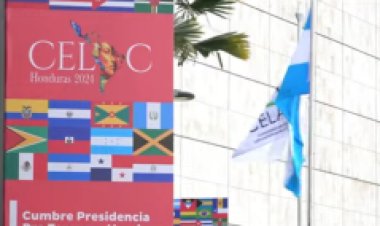International body calls on local groups to oversee water management in Africa
An international organization is calling on local communities to take an active role in monitoring water resources across Africa.

The IWMI highlighted that the continent's 63 transboundary rivers, essential for millions of people, are hampered by a shortage of adequate or modern gauging stations, which limits the capacity to assess water flow and its suitability for consumption.
According to the agency, involving local communities in research initiatives would enhance water monitoring for their protection.
"This decentralized approach, supported by capacity-building programs, can greatly strengthen the continent's water management infrastructure, increase data availability and clean water resources," the IWMI stated in a press release from Nairobi, Kenya.
The IWMI emphasized that mobile technology enables local communities to supply valuable, real-time hydrological data that can be incorporated into broader, more formal monitoring systems. They added that community engagement is crucial in improving river discharge estimates, as these communities interact with the rivers daily.
Additionally, the water research organization pointed out that African nations should leverage remote sensing technologies to provide extensive, high-frequency data that can fill the voids left by the limited on-the-ground monitoring stations.
Research conducted by the IWMI in 2024 underscores the significance of remote sensing, Geographic Information Systems, and machine learning in tackling Africa's water data challenges.
To build a water-secure future for the continent amidst escalating climate uncertainties, strategic investments in technology, effective policy frameworks, and collaborative initiatives are imperative, according to the IWMI.
The organization noted that the continent's numerous rivers, such as the Nile and the Niger, which traverse multiple countries, present opportunities for collaboration among the nations they flow through. The IWMI urged countries to invest in transboundary community engagement, data sharing, and cooperative water agreements for the effective management of water resources.
Furthermore, the IWMI called for the creation of regional data hubs that would allow countries to pool resources, share hydrological information, and make collaborative water management decisions. They also proposed the development of free, open-source data cubes and platforms, like the Digital Earth Africa platform and the Africa GeoPortal, to facilitate efficient storage and analysis of extensive satellite imagery and related datasets, enabling real-time monitoring of river basins.
By integrating these platforms with discharge data, Africa can greatly improve its capacity to identify trends, anticipate anomalies, and manage water resources more effectively, stated the IWMI.
Thomas Evans for TROIB News












